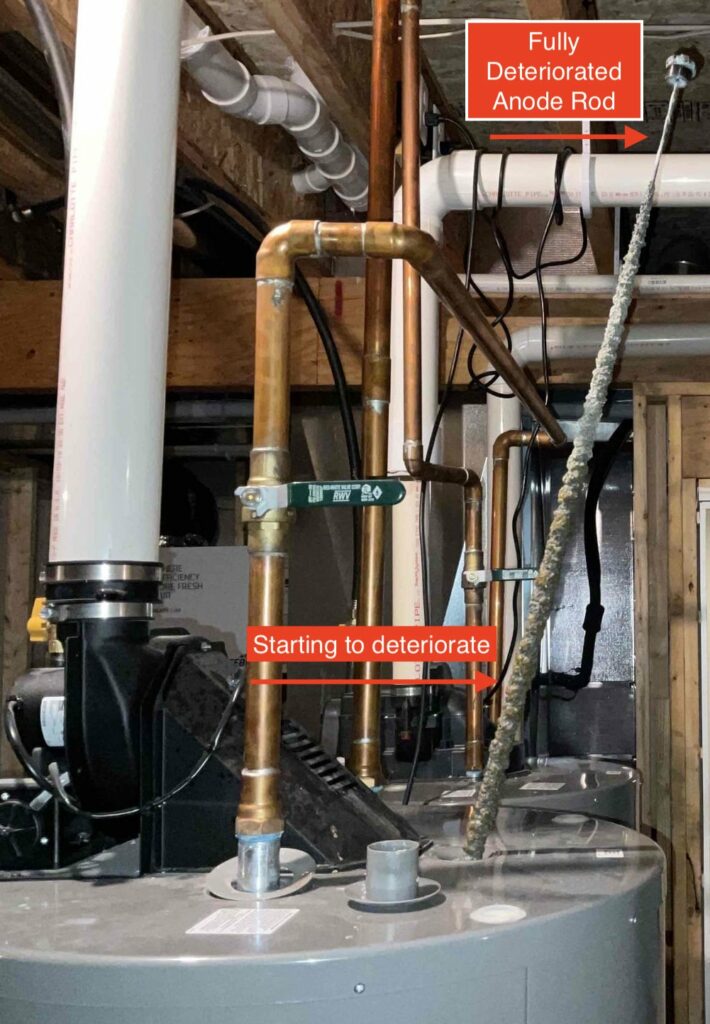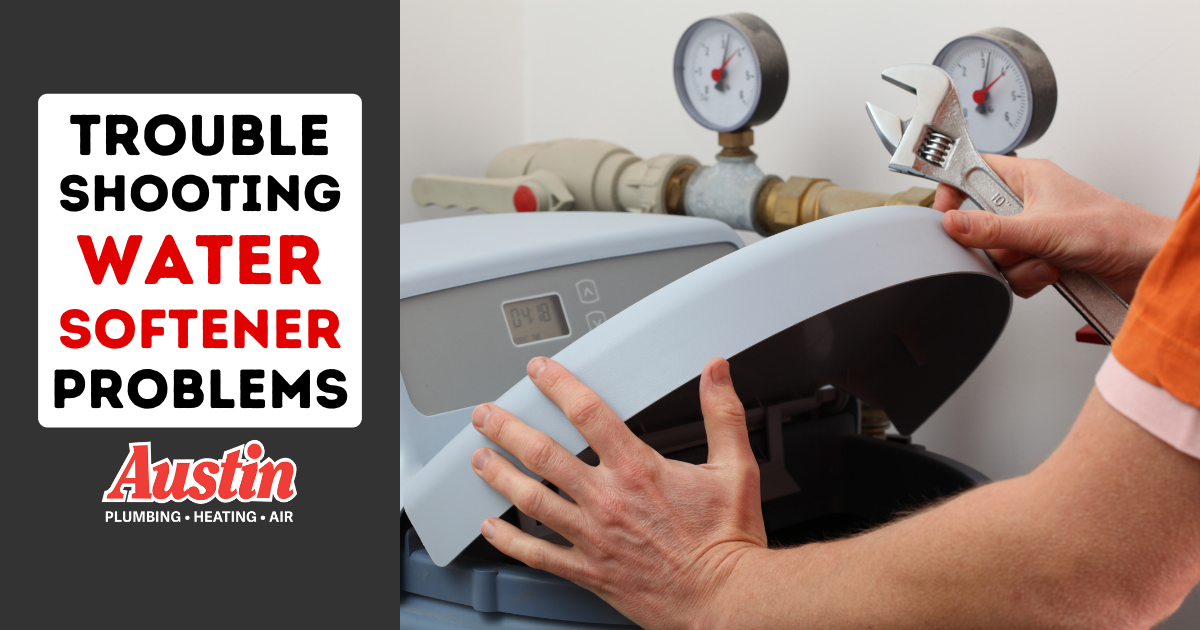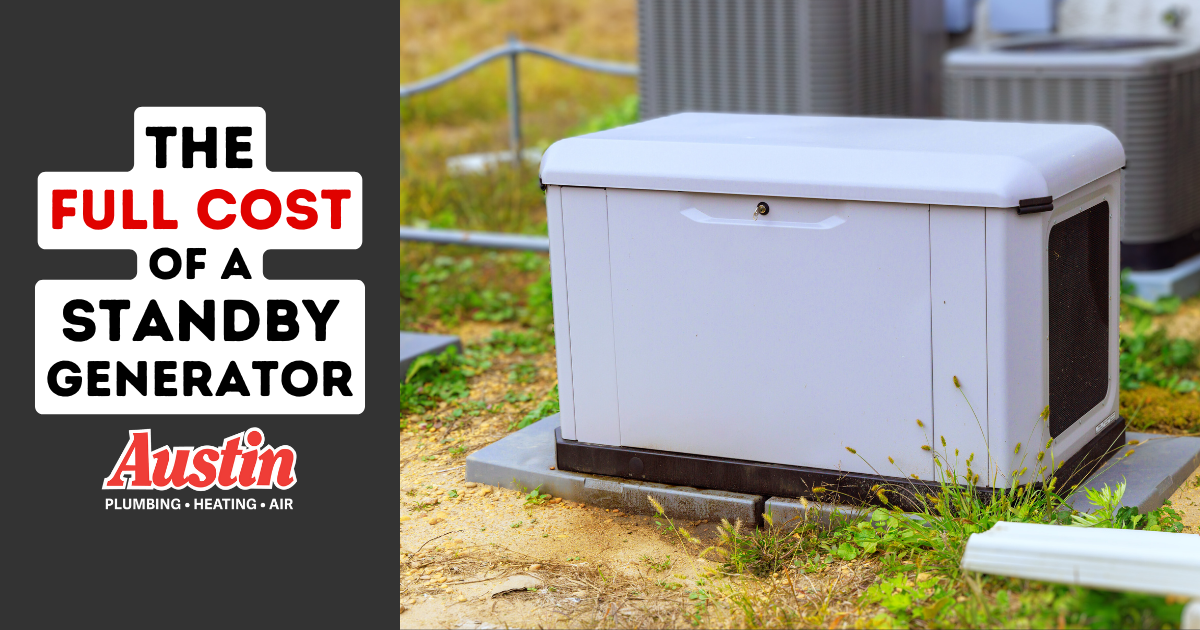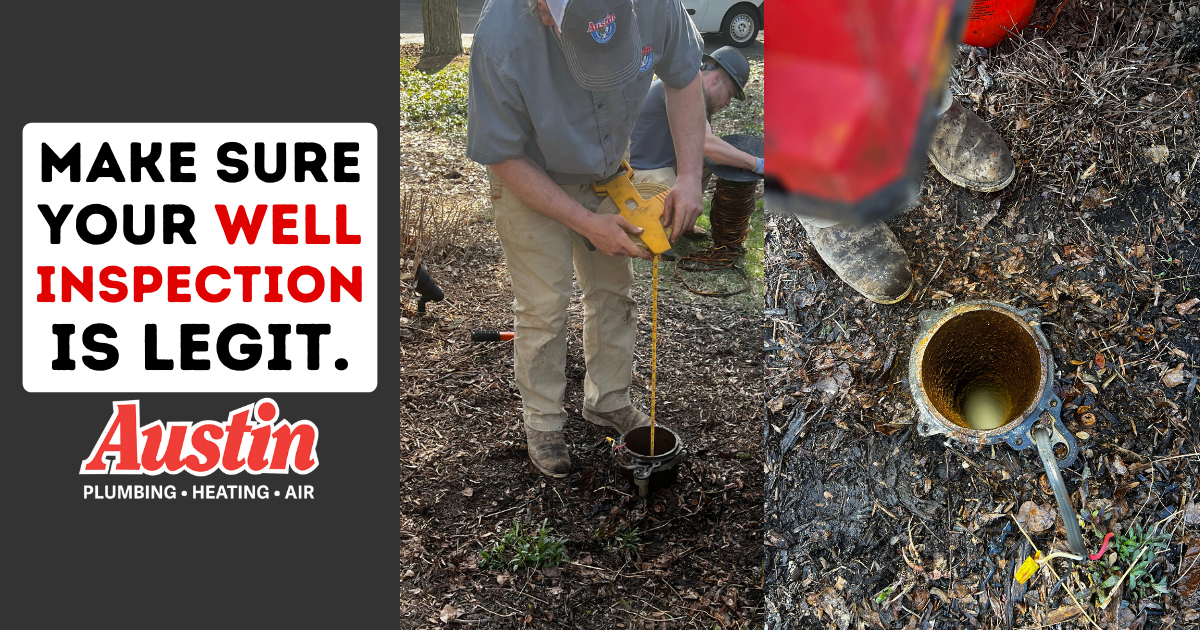Causes Of Smelly Hot Water

Is it me, or does the hot water smell like rotten eggs?
If it smells like a stink bomb went off in your bathroom after taking a shower, chances are it’s not you! Smelly hot water in Southeastern Wisconsin isn’t all that uncommon. In fact, helping folks solve smelly water problems is something we do daily. In this article, we are going to focus specifically on smelly hot water, which normally occurs shortly after the installation of a new water heater or after the installation of a new anode rod.
Why does the hot water smell like rotten eggs after the installation of a new water heater?
Great question! Although there can be many reasons water in general may take on a rotten egg odor, in almost all cases if the smell starts shortly after you get a new water heater, this new smell is a symptom of the sacrificial anode rod beginning to break down.
What is a sacrificial anode rod and why does my water heater have one?
All major manufacturers such as AO Smith, Rheem, and Bradford White install a sacrificial anode rod inside the water heater tank in an effort to extend the life of the tank. This is because when water is heated, it changes and sometimes becomes aggressive. This aggressive water looks for something to attack and break down. The anode rod is easier for the water to attack than the tank itself, hence the name “sacrificial anode rod”. The factory installed anode rod is made of magnesium because of its superior properties and ability to protect the tank. The downside of magnesium is the rare potential for sulfur or rotten egg smell in certain water conditions.
Below is an example of a statement that can be found in most water heater owner’s manuals, which explains how important this sacrificial anode rod is and why, in some instances, odor may occur.
Can we predict when there is a higher chance of smelly water?
Unfortunately, we cannot test for or predict if your water will smell after the new water heater is installed. A rotten egg odor in a newly installed water heater is a very rare occurrence and the severity of the smell can vary greatly from case to case and be intermittent. Over the years, we have noticed that the majority of the folks that encounter this problem have higher levels of iron. Iron, iron bacteria, and manganese generally go hand-in-hand. Our assumption is that the right (or wrong) combination is a contributing factor.
I have an iron filter, does this mean it is not working?
Smelly hot water is not a telltale sign that your iron removal system, iron curtain, or iron filter is broken, but like we mention above, it could be contributing to the issue. If you had a rotten egg or sulfur smell in your water before the water heater was installed, then we typically would suspect an issue with your water conditioning equipment.
Why didn’t the hot water smell in your old water heater?
The old anode rod was used up- At the point of tank leakage or water heater failure, most sacrificial anode rods are completely gone, which means they have been consumed during the life of the heater. This is why most manufacturers recommend that the anode rod gets inspected every couple of years and replaced when necessary.
Water quality has changed- Water, regardless of if it comes from a private well or city water source, does change. This can be because of changes in the aquaphor that affect the chemistry of your water such as hardness, iron and bacteria or the chemicals used by the municipal water provider.
What to do if your hot water starts smelling with a new water heater
Wait it out- If there is something in your water causing a reaction to the anode rod, sometimes the smell subsides in a couple of weeks.
Change the tank temperature- The manufacturers default tank temperature typically achieves a 115–120 degree tank temp, which is for safety and efficiency. Increasing the tank temp over the manufacturer’s default has been known to eliminate or reduce rotten egg odor, but increases the risk of accidental burns. Instructions to increase the tank temp can be found in the water heater owner’s manual or are printed on the tank.
SAFETY WARNING- There are safety implications of turning the tank temperature up past what is recommended. Please consider these risks before doing so and do so at your own risk.
Have an ATZ anode rod installed- This is not a guaranteed solution, but the installation of an anode rod made of aluminum, tin and zinc typically resolves any rotten egg odor and although less effective than a magnesium anode rod, it keeps the water heaters warranty intact. The installation of an ATZ anode rod is around $300.
Remove the anode rod- The anode rod can be fully removed from the water heater, but the water heater’s warranty will be void by doing so. Because of this, removal of the anode rod is not advised.
Most people dealing with a hot water tank smell find success with options one and two and in extreme cases have had to have an ATZ anode rod installed. To schedule an appointment to have one of our plumbers out to your home to help with any plumbing, heating, air conditioning, or smelly water problem, give us a call at 262-367-3808.







